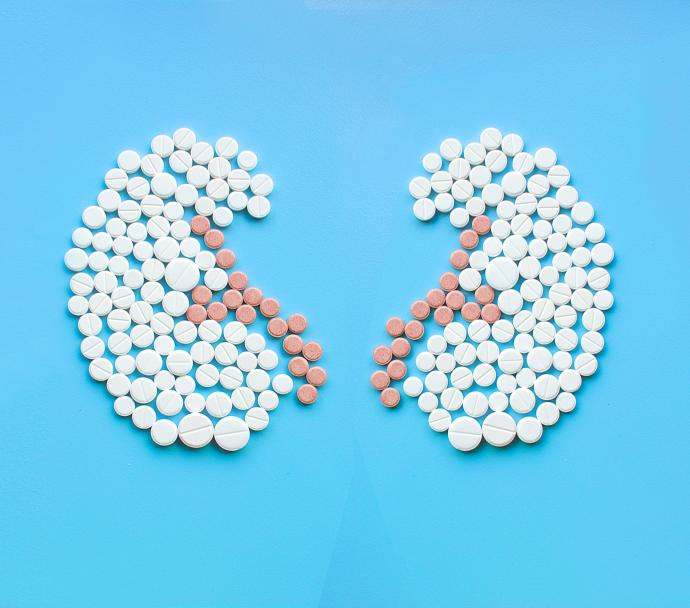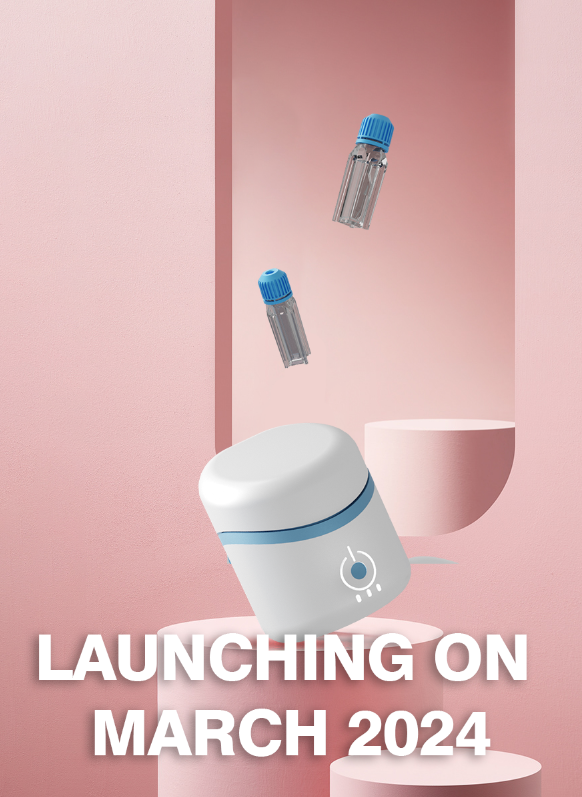
Could Your Medicine Cabinet Be Harming Your Kidneys?
In today's fast-paced world, our medicine cabinets are stocked with a variety of medications and supplements, from over-the-counter painkillers to prescribed antibiotics and blood pressure medications. While these drugs play a crucial role in managing health conditions, there's growing concern about their potential impact on kidney health. Kidney failure, a severe outcome of untreated or poorly managed kidney disease, highlights the importance of understanding the risks associated with everyday medications. This blog explores the intricate relationship between everyday medications and kidney health, highlights those at greater risk, and offers practical tips for prevention.
The Culprits in Your Cabinet
NSAIDs: A Double-Edged Sword
Non-steroidal anti-inflammatory drugs (NSAIDs) are go-tos for pain and inflammation relief. However, their convenience masks a risk: long-term or excessive use can lead to chronic kidney disease (CKD). The mechanism behind this is tied to how NSAIDs reduce the production of certain substances that help maintain kidney function, especially in scenarios of decreased blood flow to the kidneys.
Antibiotics: Use and Misuse
Antibiotics are powerful tools against bacterial infections, but their effectiveness comes with a caveat: misuse can lead to acute kidney issues. The temptation to use leftover antibiotics for unrelated symptoms or without professional guidance can not only be ineffective but harmful, as certain antibiotics have been known to cause kidney damage when not used appropriately.
Proton Pump Inhibitors (PPIs): A Silent Threat
PPIs such as omeprazole and lansoprazole are commonly prescribed to reduce stomach acid. While generally safe for short-term use, long-term consumption has been linked with an increased risk of kidney issues. The exact reasons are still under investigation, but it's believed that changes in kidney function or direct toxicity could play a role.
Blood Pressure Medications: A Balancing Act
Medications like ACE inhibitors and angiotensin receptor blockers (ARBs) are lifesavers for those with high blood pressure, yet they require careful monitoring. These drugs can potentially decrease kidney function in some patients, emphasizing the need for a balanced approach to medication management.
Supplements: Hidden Risks
The booming market for dietary supplements also poses potential risks for kidney health. Products containing ingredients like aristolochic acid, found in some traditional herbal remedies, have been linked to chronic kidney injury. The lack of regulation and potential for interaction with other medications make supplements a field where caution is advised.
Who's at Risk?
Age, underlying health conditions (such as diabetes and high blood pressure), and certain lifestyle factors significantly increase the risk of kidney disease. Older adults, in particular, need to be vigilant as kidney function naturally declines with age, making them more susceptible to drug-induced nephrotoxicity. Individuals with chronic conditions also have a higher baseline risk, necessitating a more cautious approach to medication use.
Recognizing the Signs of Kidney Damage
Kidney disease is often silent, progressing without noticeable symptoms until it's well advanced. Swelling in the ankles and feet, changes in urine output, fatigue, and nausea can all be early warning signs of kidney trouble. Understanding these signs and seeking timely medical advice can be crucial in preventing further damage and managing kidney health effectively.
Prevention and Management Strategies
Preventing drug-induced kidney damage is multifaceted, involving careful medication management, lifestyle adjustments, and regular health check-ups. Here's how you can protect your kidney health:
- Medication Awareness: Always consult healthcare professionals before starting or stopping any medication, including over-the-counter drugs and supplements. Be particularly cautious with medications known to affect kidney function and avoid self-medicating with leftover prescriptions.
- Healthy Lifestyle: Hydration, a balanced diet, and regular physical activity can all support kidney health. A diet low in sodium and rich in fruits and vegetables, along with adequate water intake, helps maintain optimal kidney function.
- Regular Check-Ups: For those at higher risk, regular kidney function tests can detect potential issues early. Discussing your complete medication list, including any supplements with your healthcare provider, ensures that potential risks are managed proactively.
Understanding Kidney Disease and Its Causes
Kidney disease can stem from various factors, including high blood pressure, diabetes, and prolonged use of certain medications—highlighting the importance of recognizing the cause of kidney disease. These conditions can impair kidney function over time, leading to a decline in their ability to filter waste effectively from the blood.
Kidney Disease Treatment
The treatment of kidney disease depends on its cause and severity. Early stages often focus on managing underlying conditions, such as controlling blood pressure and blood sugar levels, to slow progression. For advanced stages, treatments may include dialysis or a kidney transplant. Regardless of the stage, a comprehensive approach involving lifestyle changes, medication management, and regular medical care is crucial for managing kidney health.
Conclusion
While medications are an integral part of modern healthcare, their impact on kidney health cannot be overlooked. By understanding the risks associated with common medications, recognizing the signs of kidney damage, and adopting preventive strategies, individuals can safeguard their kidney health effectively. Consulting healthcare providers, adhering to prescribed dosages, and maintaining a kidney-friendly lifestyle are key steps in preventing drug-induced kidney damage and managing kidney disease.

